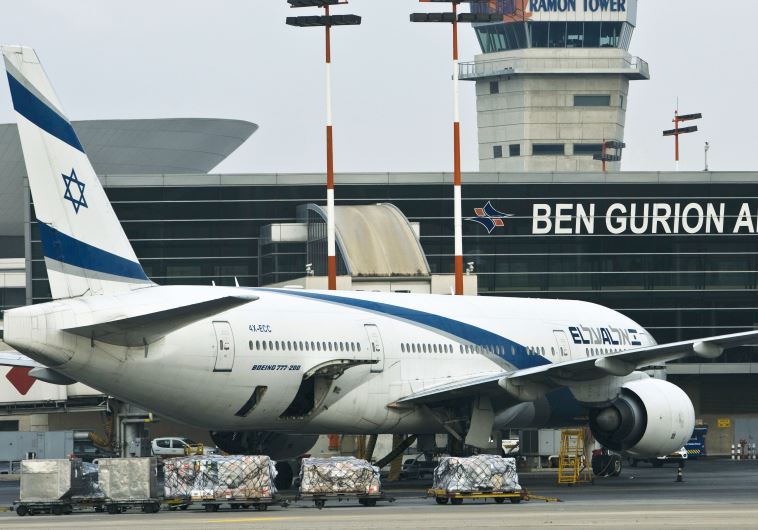Why are El Al pilots getting ‘sick’ before flights?
The delay was related to a so-called “Italian strike” El Al pilots have orchestrated several times since 2014 as part of an ongoing labor dispute.
 An El Al Boeing 777 aircraft is seen at Tel Aviv’s Ben Gurion International Airport(photo credit: NIR ELIAS/REUTERS/IDF SPOKESMAN)
An El Al Boeing 777 aircraft is seen at Tel Aviv’s Ben Gurion International Airport(photo credit: NIR ELIAS/REUTERS/IDF SPOKESMAN)